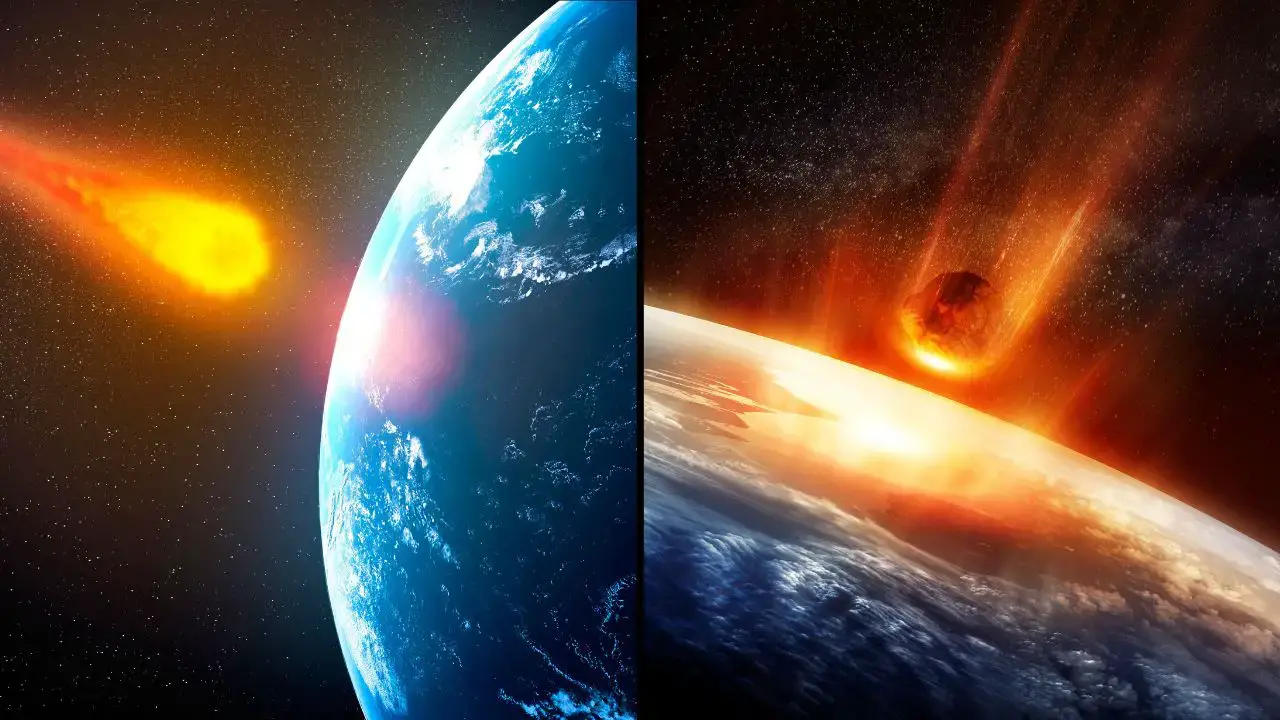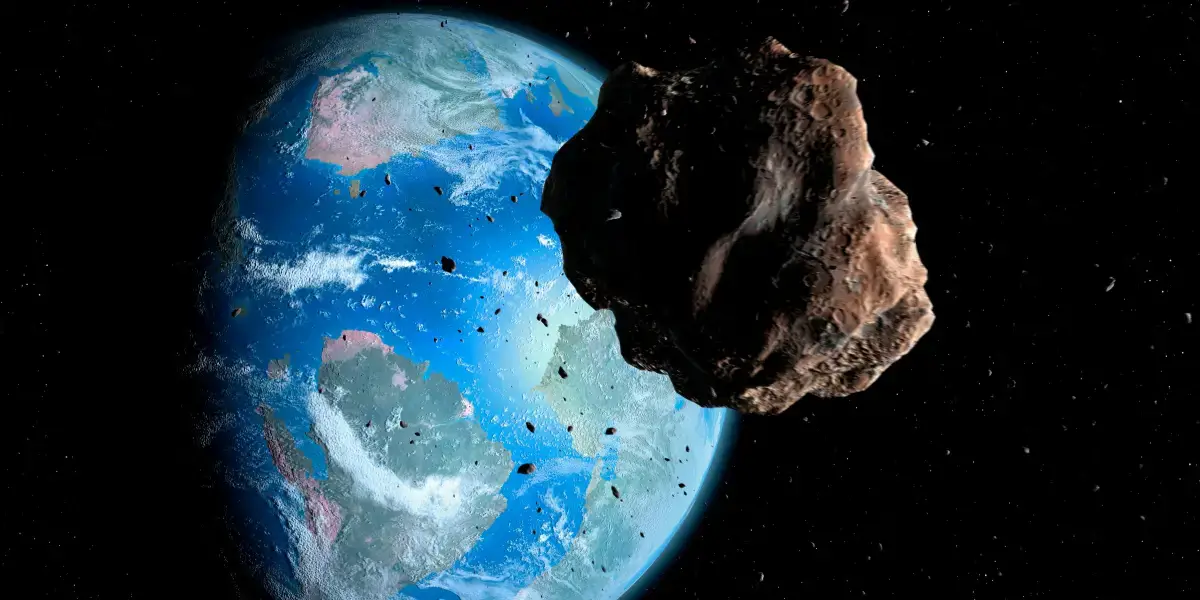
Credit: Alamy
NASA Responds To Concerns ‘Lost’ Asteroid Could Hit Earth This Year
NASA has addressed concerns that a ‘lost’ asteroid could hit Earth at some point this year.
As per the space organisation, asteroids are rocky objects that orbit the sun – similar to a planet, but much smaller.
Asteroids tend to dwell in the main asteroid belt—a region between the orbits of Mars and Jupiter – but can also be found in other regions.
If any are located near Earth, they will be identified as near-Earth objects (NEOs).
There have been concerns that a specific asteroid could strike our planet this year and NASA has now responded to these concerns.
Related Article: Scientists Predict Exact Date Asteroid Is In Danger Of Hitting Earth With Force Of 22 Atomic Bombs
Related Article: The Moon Is Drifting Away From Earth And It’s Having A Major Impact On Time
It had been reported by GB News that an asteroid – named 2007 FT3 – was first spotted floating through space in 2007.
However, scientists lost track of it and branded it as a ‘lost asteroid’.
According to the outlet, NASA said there was a 0.0000096% — or 1 in 10 million — chance of it striking our planet on March 3, 2030.
Obviously, this never happened but there is another suggestion that the asteroid has a 0.0000087%, or 1 in 11.5 million, chance of hitting Earth on October 5, 2024.

If it were to impact the Earth, it has the potential to release the energy equivalent to the detonation of 2.6 billion tons of TNT.
While this would be enough to cause a huge amount of destruction, it would be not enough to result in a severe global disaster – similar to what led to the extinction of the dinosaurs.
Fortunately, the space organisation has eased the concerns of the ‘lost asteroid’ hitting our planet and has revealed that there are no known threats to Earth for this century.
A NASA spokesperson told the Standard, via Yahoo: “There are no known asteroid impact threats to Earth at any time in the next century. NASA and its partners diligently watch the skies to find, track, and categorise asteroids and near-Earth objects (NEOs), including those that may come close to Earth.
“An important note here is planetary scientists define asteroid approaches that come within 30 million miles of Earth’s orbit as close approaches.
“The larger an asteroid is, the easier it is for our planetary defence experts to find, meaning that their orbits around the sun are usually very well-known and understood for years or even decades.”
Related Article: Scientists Discover Missing Continent After 375 Years
Related Article: NASA Confirms Launch Date To Asteroid That Could Make Everyone On Earth A Billionaire
NASA has previously estimated that there are around 32,000 known near-Earth asteroids (NEAs) and more than 120 known short-period near-Earth comets (NECs).
The majority of these aren’t predicted to come anywhere near the planet for hundreds of years.
However, one asteroid, known as 29075 (1950 DA), is ranked as the second riskiest rock on NASA’s agenda.
It measures 1.3 kilometres, weighs around 78 million tons and, upon impact, would release the energy equivalent to 75 billion tons of TNT – which is high enough to completely wipe out humanity.